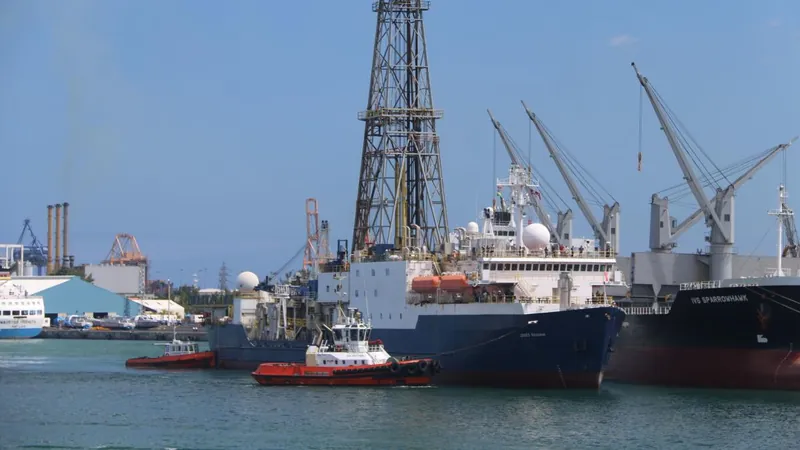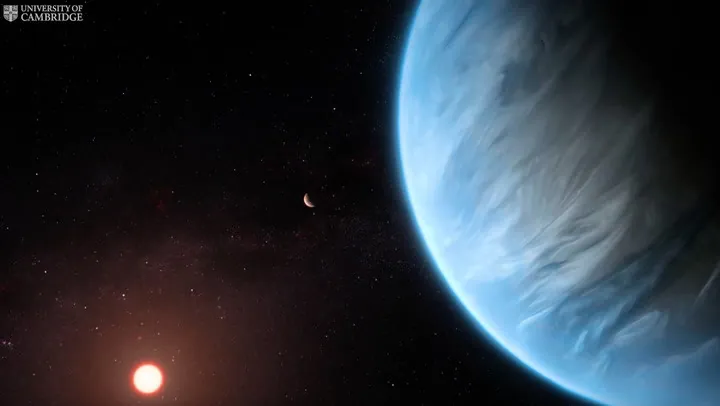
How Climate Change is Transforming Ocean Currents and Winds in the Southern Ocean
2025-01-01
Author: Sarah
Groundbreaking Study Reveals Alarming Changes in the Southern Ocean
A groundbreaking study conducted by researchers from Cardiff University reveals alarming changes in the Southern Ocean due to human-induced climate change. This shift is affecting the world's largest ocean current, the Antarctic Circumpolar Current (ACC), and altering westerly wind systems in ways reminiscent of historical periods of both ice ages and warmer intervals throughout Earth's 1.5 million-year history.
Importance of the Antarctic Circumpolar Current
The research indicates that the ACC plays a crucial role in regulating global climate patterns. A significant finding suggests that during previous global warming phases, the southern shift of the westerly winds and the ACC towards the poles led to an increase in the amount of natural carbon released into the atmosphere by the Southern Ocean.
Current Climate Trends and Warnings
This is particularly concerning in light of current climate trends. The authors warn that without robust climate action, similar processes are underway today, perpetuating the existing climate crisis. Lead author Dr. Aidan Starr emphasized the complex relationship between ocean currents and climate patterns, stating, “As our planet continues to warm, understanding these interactions is essential for predicting future changes in ocean dynamics and climate systems.”
The Southern Ocean's Role in Climate Change
The Southern Ocean is paramount in the fight against climate change, absorbing about 40% of the annual global CO2 emissions that enter the oceans. This remarkable absorption ability is primarily due to its unique upwelling and circulation patterns.
Historical Analysis of Ocean Currents
To ascertain the historical behavior of ocean currents, the international research team analyzed marine sediment core samples collected during Expedition 361 of the International Ocean Drilling Program. Their findings unveil systematic shifts in the ACC's strength and position, revealing notable differences during glacial periods with vast ice sheets versus interglacial periods which lack such ice cover.
Findings of the Study
The study outlines that during warm epochs, known as super-interglacials, the ACC slows down in mid-latitudes while accelerating in the high-latitude Drake Passage, where the Atlantic and Pacific Oceans converge. This evidences a significant poleward movement of the westerly winds, which synchronizes with the southward advance of the ACC in warmer climatic conditions.
Implications for Climate Action
These shifts have profound implications for how the Southern Ocean manages heat and carbon absorption, with Dr. Starr arguing that the need for comprehensive climate action has never been more urgent. "By linking ACC flow patterns with the upwelling of water from the deep ocean to the surface, we enhance our understanding of how these dynamics have varied over millennia, shedding light on our current climate trajectory."
Publication and Call to Action
The team's findings were published in the peer-reviewed journal *Science Advances* under the title "Shifting Antarctic Circumpolar Current South Of Africa Over The Past 1.9 Million Years." This critical research not only illuminates the intricate dance between ocean currents and global climate but also calls for immediate and significant efforts to mitigate the ongoing climate crisis.
Conclusion
Stay tuned—this revelation is just the tip of the iceberg in understanding our planet’s changing climate!




 Brasil (PT)
Brasil (PT)
 Canada (EN)
Canada (EN)
 Chile (ES)
Chile (ES)
 Česko (CS)
Česko (CS)
 대한민국 (KO)
대한민국 (KO)
 España (ES)
España (ES)
 France (FR)
France (FR)
 Hong Kong (EN)
Hong Kong (EN)
 Italia (IT)
Italia (IT)
 日本 (JA)
日本 (JA)
 Magyarország (HU)
Magyarország (HU)
 Norge (NO)
Norge (NO)
 Polska (PL)
Polska (PL)
 Schweiz (DE)
Schweiz (DE)
 Singapore (EN)
Singapore (EN)
 Sverige (SV)
Sverige (SV)
 Suomi (FI)
Suomi (FI)
 Türkiye (TR)
Türkiye (TR)
 الإمارات العربية المتحدة (AR)
الإمارات العربية المتحدة (AR)